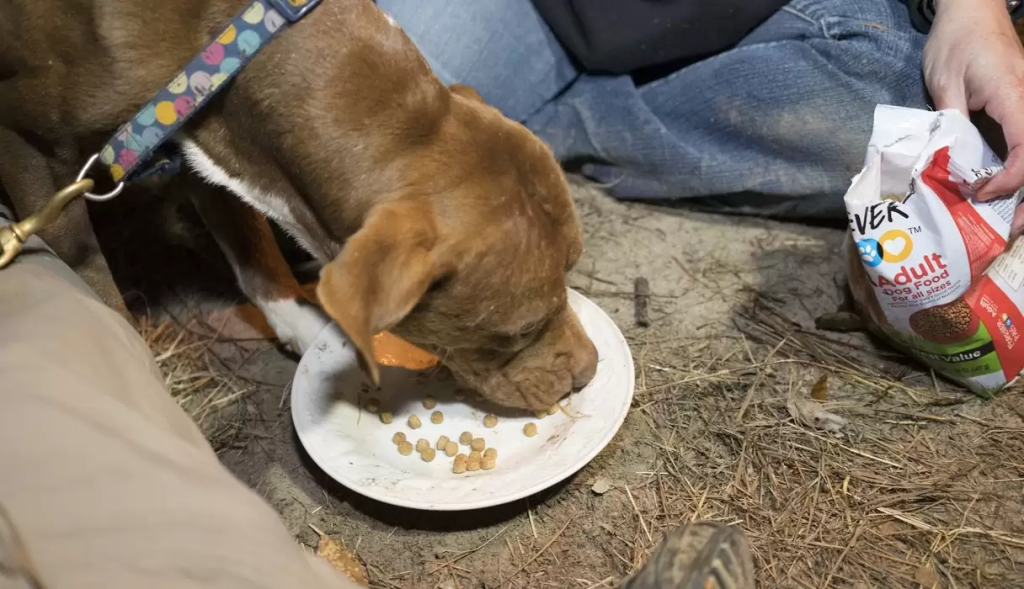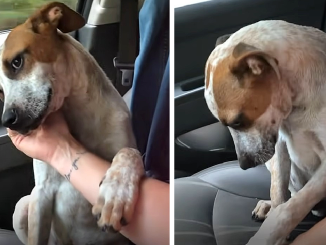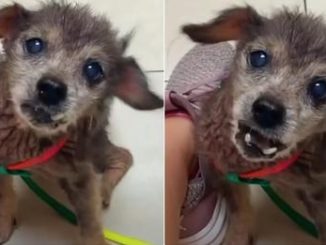Results indicated that not only can dogs detect Covid faster, but they can also do so in a non-intrusive manner – so no need to swab your throat or nose

Dogs can detect Covid-19 faster and more accurately than a PCR test, a new study shows.
Researchers looked at the ability of canines to recognise the virus and its variants, even when they are obscured by other viruses, like those from common colds and flu.
More than 400 scientists from over 30 countries contributed to the study as well as 147 scent dogs, according to the findings published in the Journal of Osteopathic Medicine.
After analysing many studies covering both field and clinical experiments, Professor Dickey and Junqueira found that dogs who are trained to sniff out scents are “as effective and often more effective” than antigen tests.
A total of 53 dogs were trained to sniff out Covid scents, while 37 were not and scientists found that the dogs that were not trained were in some cases “slightly superior” to those that were pre-trained.
“The previously untrained dogs have the advantage that they are not as prone to indicating on scents other than the Covid–19 associated scent,” the paper said.
The results indicated that not only can dogs detect Covid faster, but they can also do so in a non-intrusive manner. This means you won’t need to put a swab in your throat or nose.
How can dogs detect the virus?
This essentially comes down to the dog’s highly evolved nose with its ability to sense out smells quicker.
Dogs possess up to 300 million olfactory receptors in their noses, compared to about six million in humans. And the part of a dog’s brain that is devoted to analysing smells is about “40 times greater” than humans. Canines also have ‘neophilia’, which means they are attracted to new and interesting odours
And so, with all these enhancements, dogs can detect very low concentrations of odours associated with Covid infections.
“They can detect the equivalent of one drop of an odorous substance in 10.5 Olympic-sized swimming pools,” Professor Dickey said. “For perspective, this is about three orders of magnitude better than with scientific instrumentation.”
Scientists also found that in some cases, the animals were also able to detect the virus in pre-symptomatic and asymptomatic patients, “whose viral load was too low for conventional tests to work.”
Professor Dickey has said that dogs can also differentiate Covid and its different variants in the presence of other respiratory viruses. This included the common cold or flu.
“They’re much more effective. In fact, one of the authors that we quote in the paper commented that the RT-PCR test is not the gold standard anymore. It’s the dog. And they’re so quick,” he added. “They can give you the yes or no within seconds if they’re directly smelling you.”

How was the study conducted to see if dogs can really detect Covid-19?
In some studies, the dogs gave a person a quick sniff, sitting down to see if the person has Covid. In another study, the dog was given a sweat sample to smell for a few minutes.
The press release has said that scent dogs, such as beagles, basset hounds and coonhounds are the ideal candidates for sniffing out the virus, given their “natural tendencies to rely on odours to relate to the world.”
But the studies which the researchers analysed showed a variety of dogs were up for the challenge and were able to sniff out the Covid odour. With a few weeks of training, puppies, older dogs, purebred and mixed breeds, both male and female were able to sniff such odours out and “all performed admirably,” the Eureka Alert press release said.
Although there has been success with dogs detecting such viruses, researchers believe there are still many challenges with using dogs for medical diagnoses.
“There’s quite a bit of research, but it’s still considered by many as a kind of a curiosity,” said Professor Dickey.
In conclusion, Professor Dickey and Junqueira said after reviewing the studies, believe that scent dogs deserve “their place as a serious diagnostic methodology that could be particularly useful during future pandemics, potentially as part of rapid routine health screenings in public spaces.”
“Perhaps, most importantly, we argue that the impressive international quality and quantity of COVID scent dog research described in our paper for the first time, demonstrates that medical scent dogs are finally ready for a host of mainstream medical applications,” they added.
“Reviving Hope: The Emotional Resonance of a Girl’s Warm Hug as She Rescues a Dog from Abandonment and Starvation”
In the quiet shadows of an abandoned house, a tale unfolds—a story of neglect, resilience, and the transformative power of compassion. This is the narrative of a girl whose warm hug became the beacon of hope for a dog left to starve and suffer in isolation. The poignant rescue not only warmed the dog’s cold heart but also stirred a collective wave of sadness and sympathy.

The story begins in the desolation of an abandoned house, where the echoes of neglect reverberate through the silent corridors. In a dark corner, a dog, once a beacon of joy, now endures days of hunger and loneliness, the weight of abandonment etched in the weariness of its eyes.
Enter the girl, a compassionate soul who, moved by empathy, discovers the forsaken canine. Ignoring the dilapidated surroundings, she extends a hand of rescue to the starved creature, embodying the essence of kindness that transcends species boundaries.

As the girl wraps the emaciated dog in a blanket of compassion, a warmth permeates the air—an embrace that speaks volumes without words. The once-neglected creature, now cradled in the arms of care, begins to feel the thawing of its heart, and a flicker of life returns to its dimming eyes.

The pivotal moment comes when the girl, recognizing the power of touch, envelops the dog in a warm hug. It is a gesture that transcends the physical, conveying a sense of solace and understanding that words could never capture. In that embrace, a connection is forged—a bridge between two souls, one yearning for love, the other offering it unconditionally.
The heartwarming rescue, shared through the lens of compassion, resonates with the broader community. As the images and story circulate, they evoke a collective sadness, inviting onlookers to confront the harsh realities of animal abandonment and rally against such acts of neglect.

In conclusion, the story of the girl’s warm hug rescuing the abandoned and starved dog is a testament to the redemptive power of compassion. It serves as a call to action against the silent suffering of neglected animals, encouraging a collective effort to create a world where every creature, no matter how forsaken, can experience the warmth of love and care. The narrative is a poignant reminder that, in the embrace of compassion, even the most desolate souls can find healing, redemption, and a chance for a brighter tomorrow.



Leave a Reply